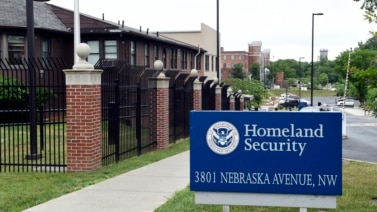Immigration has been, and continues to be, a major issue in the United States.
Immigration has been angrily debated during the 2016 presidential election campaign. It also is important in many state and local election races, such as the 6th Congressional District of Colorado. There, 20 percent of registered voters are Latino.
VOA recently went to Denver, Colorado's capital, to examine the effect of the Latino vote on the election.
Morgan Carroll is the Democratic candidate for Congress in the 6th district. Today she is visiting a place that helps people who are living in the United States without legal permission. Some activists call such persons “illegal aliens.” Others call them, “undocumented immigrants.”
Morgan Carroll: “Hi Sara, Good to meet you.” “Good to meet you!”
“I think it's a microcosm for the world and for our country.”
Morgan Carroll: “What you're showing is how strong the unmet need really is.”
Morgan Carroll says voters tell her they oppose immigration laws that force some family members to leave the country, but let others stay.
“I hope they realize their own strength and numbers and the power they have that this is the time to demand better policies and treatment for them, for their families.”
The borders of the 6th Congressional District changed in 2011. The changes caused an increase in the number of Latino voters in the district.
Carroll's opponent, Republican Mike Coffman, currently represents the district in Congress. Many Republicans support strong immigration laws. But after the redistricting, Coffman reduced his support for such laws. And he has been using advertisements to reach out to Latino voters.
Commercial: “Mike Coffman es uno de nosotros.”
Coffman in commercial: “Yo le hago frente”)
Coffman has worked to learn Spanish. And he has strongly criticized his party's presidential candidate, Donald Trump.
The 6th congressional district race is one of the closest in the country.
But Latino voters are not only changing congressional races. Colorado is home to more than 500 thousand Latinos who can vote. They have changed the state from one that usually voted for Republicans into a swing or battleground state - one that either major party has a chance to win.
But Latinos will have power only if they vote. Activists say many Latinos register but do not take part in elections.
Dulce Saenz is a Latino community organizer.
“Often times, when in other countries, you're not encouraged to vote, or elections aren't free and fair. You know, you wonder why maybe other immigrants that become newly-registered or, or new citizens aren't voting. I think there might be some of those tendencies from other countries.”
Jenny Santos goes from home to home in a Denver neighborhood six days a week.
Jenny Santos: “So we just wanted to make sure that you're going to turn out to vote for the Nov 8th election.”
Santos says she tells people why they should vote.
“It's important for them to turn out to vote -- every vote counts, and their vote matters. Sometimes it's very, it's, it's disheartening to hear that folks feel that, the, our politicians aren't listening, our government is not listening.”
But she says politicians also need to appeal to Latino voters.
“If campaigns don't target the Latino community to get them out to vote, then folks will not turn out to vote.”
Carroll agrees.
“They want to see that you're actually leading a fight to do something to help their families and that you're not just doing lip service in either English or Spanish.”
I'm Christopher Jones-Cruise.
VOA's Katherine Gypson reported this story from Denver, Colorado. Christopher Jones-Cruise adapted her report for Learning English. George Grow was the editor.
We want to hear from you. Write to us in the Comments Section, or visit our Facebook page.
Words in This Story
microcosm - n. something (such as a place or an event) that is seen as a small version of something much larger
tendency - n. a way of behaving, proceeding, etc., that is developing and becoming more common
turn out - v. to appear
matter - v. to be important
dishearten - v. to cause (a person or group of people) to lose hope, enthusiasm or courage; to discourage (someone)
lip service - n. support for someone or something that is expressed in words but that is not shown in that person's actions


